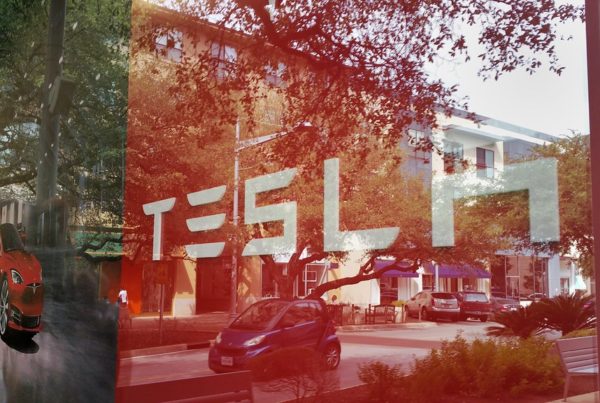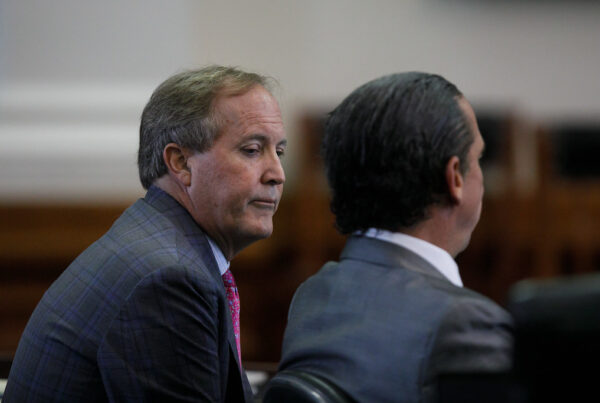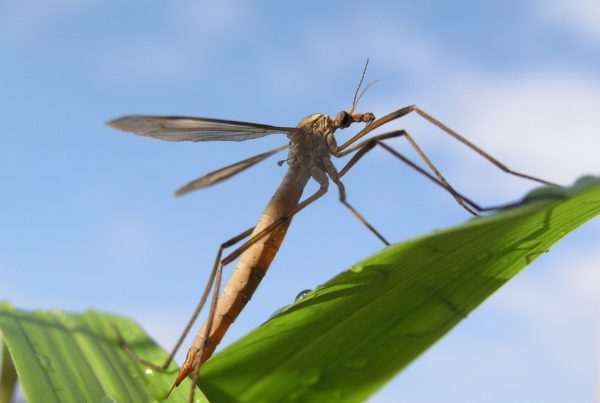While synonymous with rage and rebellion, punk rock is also rich with a history of amplifying oppressed communities and creating spaces for them: Think backyard shows, makeshift venues and networks of zines, tape traders and DIY show bookers.
“Chuco Punk: Sonic Insurgency in El Paso” examines the El Paso punk scene from its beginning to the turn of the century. Author Tara López, an assistant professor of ethnic studies at Winona State University, joined the Texas Standard to discuss her book, out now from the University of Texas Press.
This transcript has been edited lightly for clarity:
Texas Standard: You write in this book that El Paso holds a special place in your heart, especially when it comes to the conversation about the power of punk in the city. Can you explain to us the intersectionality between the two and how the punk scene came to occupy such a big space in El Paso?
Tara López: So in my book, there are really two points that I focus on – on how there is that intersection of El Paso and punk rock. And so the first thing to point out is that El Paso has a really deep, rich history of sonic resistance and innovation. And I think the key example of that is the rise of Pachuquismo, and in particular, it’s the birthplace of Don Tosti.
If people don’t know who Don Tosti is, he’s the magnificent musician who sang “Pachuco Boogie.” So already you have these rebels, and in particular Mexican-American rebels, that are creating very innovative music and culture and really a form of music and culture that’s used as a force of cultural resistance, especially in regards to white supremacy. That comes down really hard, especially in the early 20th century, in places like El Paso.
The second part of why, if you look at punk coming out of El Paso, in the late 1970s, is that this is what was occurring throughout the world, and really it was one of these key sites. And it’s an intersection point, right? It’s a pass. That’s what El Paso means.
So you have people who were born there, people coming from Mexico, people going there because their parents are stationed there because of Fort Bliss. So this really dynamic type of milieu, if you will, of really engaged and really hungry, smart, innovative and talented people just waiting to find something. And so some of them really start to create their own punk cultures, starting in the 1970s and going forward.
What are some of the bands that come to mind when we’re talking about this scene?
It depends on the era, but the most notable one is going to be At the Drive-In. That’s going to be the most popular and well-recognized band when people think of punk rock in El Paso.
Another one that was more 1970s and like Don Tosti, who was from El Paso but then moved to Los Angeles: Tito Larriva was born in Juárez and then lived in El Paso. He created the band The Plugz in Los Angeles as well. So the other key most notable band would be The Plugz, even though they came out in Los Angeles, but at the core would be At the Drive-In.
» GET MORE NEWS FROM AROUND THE STATE: Sign up for Texas Standard’s weekly newsletters
How do we find some of the influences of Mexican culture in El Paso punk music? Where do we see that?
So if you just look at At the Drive-In’s most famous punk classic, which is [the album] “Relationship of Command,” so many of their songs are very El Paso-focused.
So one of the key songs is “Invalid Litter Department,” which is entirely about the femicides along the El Paso-Juárez border. That definitely reflects the Mexican, Mexican American influence because it’s very geographically focused, even though this record was recorded in Los Angeles, so there’s really already a focus there.
The second example would be The Plugz – and their album “Electrify Me” is a great album, so if you ever get to listen to it, you should. But one of the best songs that they do is they redo Ritchie Valens’ – aka Ricardo Valenzuela’s – “La Bamba,” and so they’re doing it at a very fast pace – it’s like they’re singing “La Bamba” but at a punk pace.
And then they go into a whole punk diatribe in Spanish. “I’m not a fascist, I’m an anarchist,” but in a totally punk fashion, but entirely in Spanish. So they’re already using a very traditionally Mexican, Mexican-American song, but contorting it in a really awesomely punk way.
You know, this movement is incredibly influential because of its anger and blunt lyrics. Why was the punk scene needed then? And especially, why is it important now, given that most of the bands in your book are dormant or broken up?
I think culture is always needed and music is always needed because it’s the key form of expression for marginalized communities, especially in El Paso. You’re talking about oftentimes an economically struggling city that in particular, in the 1990s, becomes the focal point of economic devastation put forward by NAFTA. So you have this element of these punks using this form of music to express their anger, their frustration with economic instability and precarity, how it affects their everyday lives.
And why is it important now? In particular young people of color to see themselves, especially Mexican American young people, to see that one punk is not a white-dominated genre, because that’s something that’s reiterated, whether it’s in journalism and sometimes even in scholarship, that this is like white music.
And then the second part, for people that might think, “Well, I’m not into punk music. Why do I care?” Well, this is also an element of our culture because most marginalized cultures and people are not represented in academic scholarship. It’s like, well – that’s not real culture. Real culture is something else.
But it is real culture because it was reflecting changes, but also advocating for really substantive changes within their communities, and that poor communities of color can create outstanding forms of culture. Just think – hip-hop and rap, right, are absolutely essential to understanding communities and also having a sense of pride of like, yes, we did create something.
I’m not from El Paso, but I’m from New Mexico, and to see that El Paso and these Mexican American kids like myself are creating awesome music and awesome music culture makes me feel that I have a sense of space and also a sense of cultural history.














